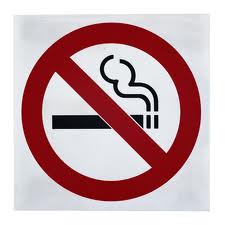Quitting a bad habit: Revelations from Obama’s tar sands decision
If you smoke cigarettes, you may have reached a desperate point where you’ve picked up a half-smoked butt from an ashtray and lit up. Sure, it’s dirty, takes a lot of work for a relatively small reward, and is more than a little disgusting. But it serves the purpose: feeding a tenacious addiction.
It’s a provocative analogy to conjure as we consider President Obama’s recent announcement to postpone a decision on the controversial Keystone XL pipeline. That 1,700-mile project, which most observers had thought was a done deal, would have transported Canadian tar sand sludge to refineries in Texas and Louisiana. This week, Obama said he was going to review the health and environmental effects of the decision, and there are even hints that he will also consider the alarming climate-change impacts of industrial tar sands production.
Is this environmental progress we can believe in?
Maybe. Maybe the president has been studying his personal playbook to make this bold call. Obama, we know, has struggled with a nicotine addiction, and has been rumored to sneak off into the Rose Garden to light up. That said, he knows that Sasha and Malia don’t want their daddy to get lung cancer, and vowed to stop. Apparently, he succeeded; we were told after the recent Presidential health-check that Obama was “tobacco-free.” Would it be too much to think he’s turning the page on self-destructive fuel habits as well?
Here’s a quick paragraph for those who haven’t kept up with the “unconventional fuels” debate. Because oil is getting harder to come by and more expensive to get, many oil companies are turning to ever more far-fetched carbon-based alternatives for transportation fuel: oil shale, coal-to-liquids, and tar sands are three of them. Tar sands are basically proto-hydrocarbons – a mixture of sand, clay and bitumen that can be mined by the megaton, cooked into a goopy sludge that can be transported long distances in pipelines and eventually processed into something that you can put in a car or a plane to make it run. Tar sands require more energy to find and refine than conventional oil, produce more water and air pollution, and have a carbon footprint that is so big that some climate scientists have warned that continued tar sands production would doom the planet. In a recent piece I wrote for National Wildlife magazine, I look at how animals are acting as unwitting sentinels for humans – and are already dying in flocks because of the Alberta tar sands juggernaut.
That’s because up in Canada, there are a lot of these tar sands – which are the functional equivalent of a trove of cigarette butts. In essence, oil companies are basically scraping the pavement for vast quantities of these butts, picking out the vestigial tobacco, liquefying it, shipping it in pipelines to a distant manufacturing plant, reprocessing the tobacco into cigarettes, repackaging it, and bringing these reformulated butts to market. In order to do that, they’ve proposed building a giant pipeline that carves a path all the way across the country, from Montana to Louisiana, to carry these cigarette dregs.
Wouldn’t it be easier to stop smoking?
Could that be the message from Obama’s decision? It’s far too early to tell, but we can all breathe one clean, collective sigh of relief that this truly bad idea of a pipeline will not be built during this president’s first term. Whether you opposed the pipeline because of its climate change impacts, its vast pollution, its wrong-headed approach to our energy future, or just because it’s killing a lot of migrating birds, a sane future for this planet should not include tar sands production.
Because the sad truth is, whether you buy your Camels by the carton or scrounge them from train station platforms, if you smoke, you still stand a good chance of getting cancer.
